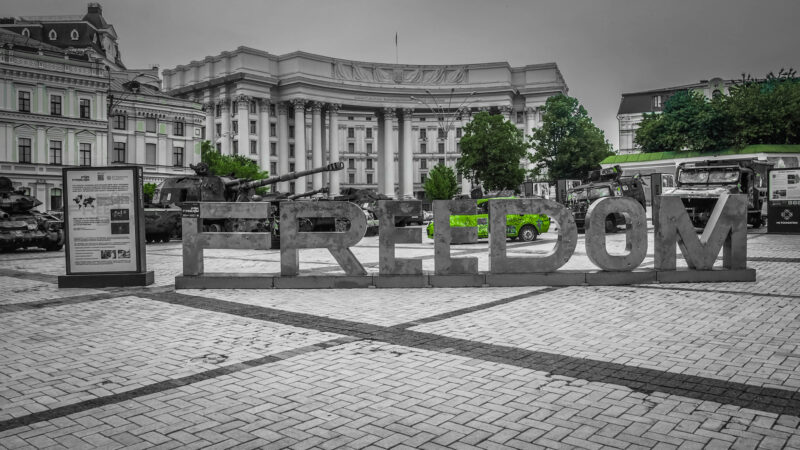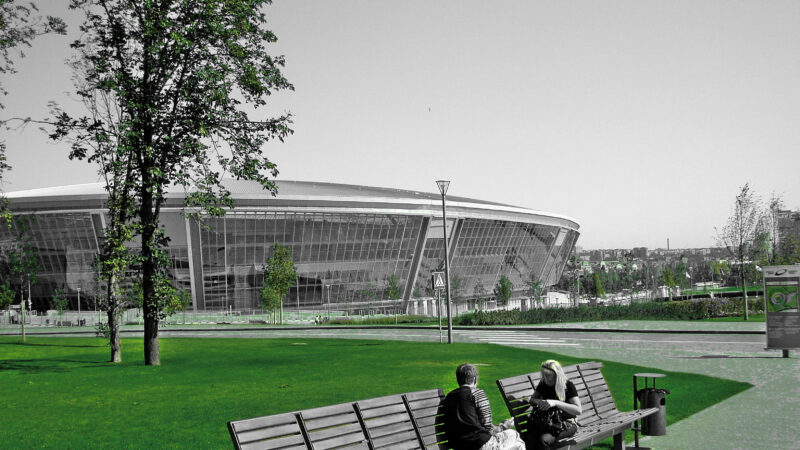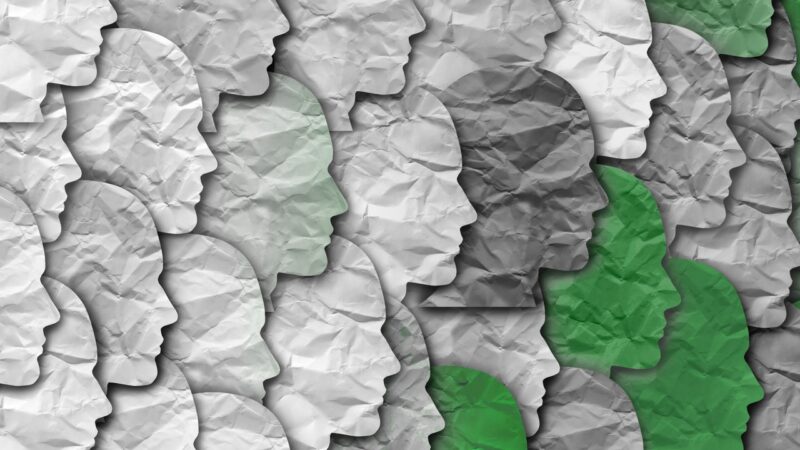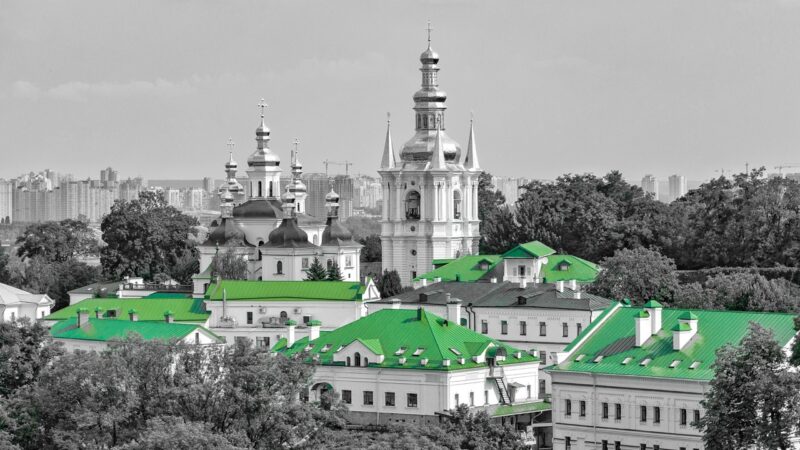Was Ukraine a Russian colony?
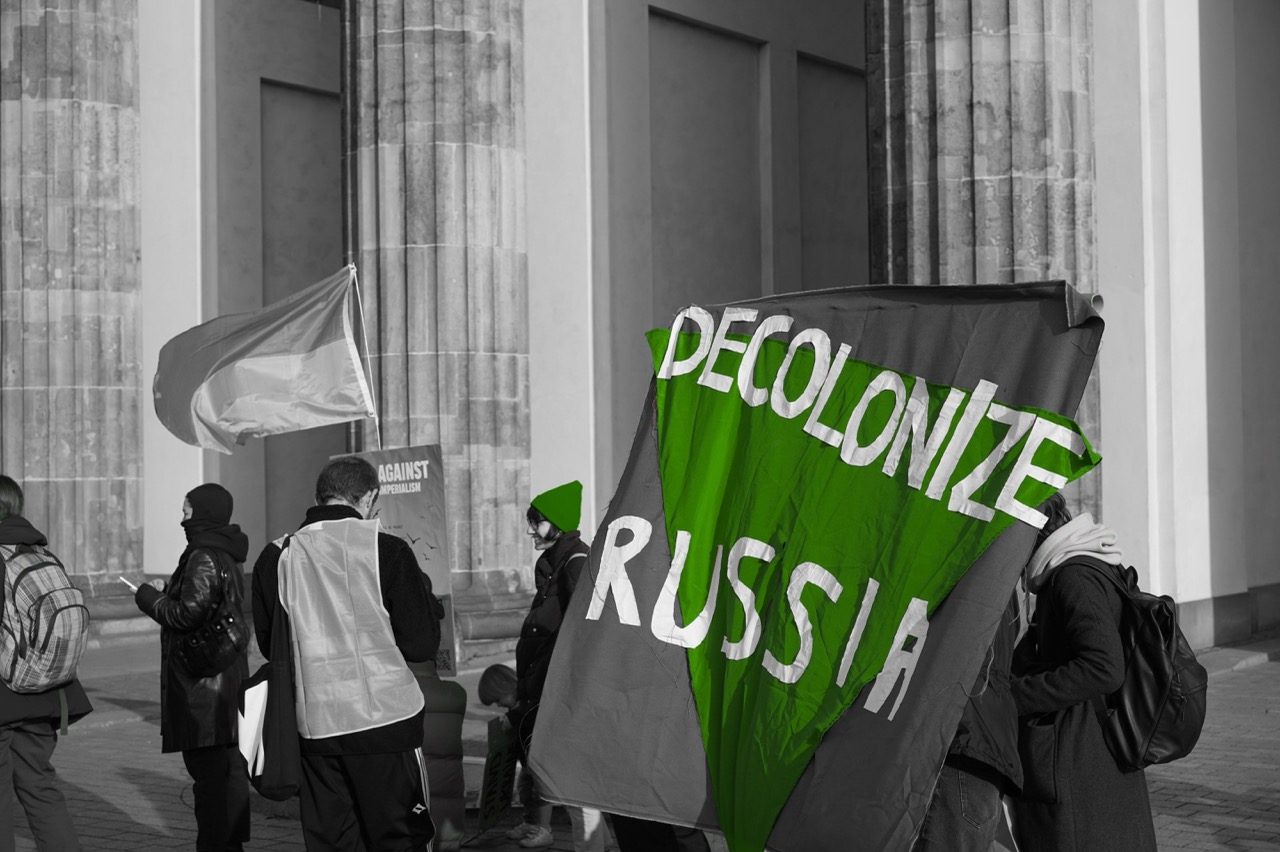
The short and somewhat simplified answer to this question is that it would be incorrect to call Ukraine a colony, because the Russian Empire and USSR are incorrectly considered to have been empires.
To address the question, the following definitions are proposed: a classical empire includes a central state, separated from its colonies by seas and oceans, with an obvious geographical distinction between colony and metropole. On the other hand, land-based empires such as the Ottoman or Austro-Hungarian empires do not fall under this framework. The Russian Empire was also a land-based empire, with highly blurred boundaries between its centre and periphery. This historical geography factor allowed the Russian Empire to subordinate an enormous territory of the Eurasian continent under its rule—including the vast Eurasian steppe, which stretched from Manchuria to what are today Bulgaria and Romania. This steppe had long been marked by mass migrations of tribes and peoples from East to West. While in Europe large-scale migration ended during the Middle Ages and ethnic borders became more or less stable, this was not the case in the Eurasian steppe, including its western part. These Russian-Ukrainian borderlands experienced waves of mass migration even in modern times, all the way up to the Second World War and the early postwar years. In the 19th century, these waves were associated with the colonization, urbanization, and industrialization of the Black Sea steppe region (known as “New Russia”), as well as with Stalin’s forced deportations in the 20th century. One would be hard-pressed to find another place in the world where conditions were as uncertain as they were on the peripheries of the Russian Empire throughout its history.
From the perspective of imperial development, the history of the ethnic Ukrainian lands in this region was particularly convoluted, given the desire to control them that was acted upon by imperial Russian, Polish, and Ukrainian nationalist forces, often simultaneously. Considering Kyiv and Central Ukraine as an example, the boundaries between imperial metropole and colony here were not determined by any fixed criteria but rather by subjective perceptions. That is, territories which Russians may have considered to be part of their metropole were seen from the Ukrainian perspective as a Russian colony.[1]
As Professor Eva Thompson rightly notes, Russia’s colonies are contiguous, unlike the classical remote colonies: “Countries like Great Britain, France, Germany and Italy, sought their colonies overseas. There’s a distance between them and those countries, those nations that they conquered. Russia simply conquered its neighbors, and little by little, it went east, south, north, and west. Whenever you have the case of contiguous colonialism, it appears that maybe this is just an adjustment of borders and not colonialism. Other countries didn’t react, because obviously, colonies must always be overseas.”[2]
Another important feature of classical imperialism is that the centre is much more developed than the peripheries. However, in the Russian Empire (and subsequently the USSR) the situation in the Western borderlands was the reverse: the population there was more educated, the economy was more developed, and so on.
“Russia” was a vast but backward empire that acutely needed an educated leadership to govern its immense territories. The Ukrainian elites were aware of this and used it to their advantage, consciously and quite successfully. They were not as numerous as the Polish nobility and not as educated as the Baltic barons. Still, they had one significant advantage: they were Orthodox Christians, and in the eyes of the Russians that meant Ukrainians were “one of their own.” Many Ukrainians served the Empire sincerely and paved the way for its global reach, as they also considered it “theirs.”
Let us recall Oleksandr Bezborodko, for example. He was one of the most successful military commanders and state leaders during the reign of Catherine II. A “Most Serene Prince” of Muscovy and a reformer, Bezborodko was the only one among Catherine’s ministers who was not dismissed after Paul I succeeded her. He was the author of several works on the history of Ukraine, Moldova, and the Russo-Turkish wars, one of the wealthiest individuals in Russia, owner of a valuable collection of European paintings, and a respected diplomat in Europe. He provided funding for the Nizhyn Lyceum of Higher Education in 1805 (established posthumously by his brother Illia), which carried his name until 1920; today it is the Nizhyn Hohol State University.
In the 18th century, around half of the imperial elite were Ukrainians—more commonly known at the time as “Little Russians” [malorosy]—some of whom held very high positions. By the beginning of the 19th century, Russian officials were known to complain that due to their “collective solidarity,” the Little Russians had captured key positions and were blocking their path to advancement.
A comparable situation arose in the USSR after the death of Stalin. During the late Soviet era, the history of Russia was jokingly divided into three periods: the do-petrovskyi (pre–Peter I), petrovskyi (during the rule of Peter I), and dnipropetrovskyi (implicating the Ukrainian city). It was not only Leonid Brezhnev with his “Dnipropetrovsk clan” but also Nikita Khrushchev and Mikhail Gorbachev who were connected to the Ukrainian elites and enjoyed their support. In return, they offered their partnership in the management of the Soviet Union. Just as Russian officials in the 19th century complained about “Little Russian” influences in St. Petersburg, high-ranking members of the Communist Party of the Soviet Union in the 1970s also complained about the dominance of Ukrainians in power in Moscow.
This balance of power in Russian-Ukrainian relations cannot be unequivocally labelled as a relationship between a colony and the imperial metropole. By comparison, it is hard to imagine that the colonial elite from South America could have held high positions in Madrid or Lisbon, or that the Indian or Algerian elite could have ruled in London or Paris.
At the same time, it is worth noting that the advantages and benefits associated with service to the Russian Empire mainly accrued only to those members of the Ukrainian elite who were in a position to pursue a career in the centre. The career prospects of those remaining at home were quite different. In the Ukrainian provinces of the empire, the share of Ukrainians in the government bureaucracy fell from 50% in 1800 to 10–15% in 1914. This does not mean that Ukrainians were explicitly discriminated against. It was rather that the circumstances of the imperial governing structures—which were, of course, corrupt—created a situation in which governors sent from the center arrived with a retinue of relatives and staff who needed to be employed. They occupied positions and gradually displaced the local Ukrainians.
We have a paradoxical situation: Ukrainians could build a career in the Russian Empire’s centre or its eastern and western peripheries but had low chances to do so in Little Russia—its Ukrainian holdings. This situation fundamentally distinguishes the Russian Empire from, for example, the British Empire: on the one hand, no one of Indian origin could hold a high position in London; on the other hand, in India the British authorities intentionally increased the proportion of local elites in the bureaucracy as a means of better facilitating the management of this remote, massive, and obviously foreign colony.
In contrast, from the time the Communist Party of Ukraine was established in July 1918 until Stalin’s death in 1953, not one of its First Secretaries was an ethnic Ukrainian. Elsewhere in the Ukrainian SSR there were Ukrainians among the heads of government agencies, but these institutions were directly subordinated to the central authorities in Moscow.
Imperial Russian and later Soviet rule imposed severe restrictions on political freedoms. The Russian Empire was never a constitutional monarchy—unlike, for comparison, neighbouring Austria-Hungary, which also had a significant Ukrainian population. Even under Poland’s authoritarian interwar regime, resident Ukrainians were allowed a minimal level of freedom that their compatriots in the USSR could only dream of.
During the Soviet era, an important contribution to the debate concerning whether Ukraine was a colony of Russia was made by the economist Mykhailo Volobuiev. In 1928, the journal Bil’shovyk Ukraїny (no. 2–3) published his article “On the problem of the Ukrainian economy.” The article was controversial, first outlining the history of tsarist colonial policy in Ukraine up to the events of October 1917 and then refuting the idea of the economic unity of the Russian Empire, positing instead that it comprised a complex of national economies in the territories suborned by Russia. Moreover, Volubuiev emphasized that precisely this economic diversity was being ignored by both Russian economists and Moscow’s governing institutions (including the USSR’s State Planning Committee). In general, they even avoided the very name “Ukraine,” preferring such terms as “South,” “Southern Region,” “Southwestern Region,” “South of European Russia,” and “South Russian Economy.”
Volobuiev considered Ukraine to be a colony of the European (i.e., land-based) type that had been incorporated into the Soviet Union. He maintained that the problem of eliminating the colonial legacy of the tsarist regime in Ukraine had to be resolved differently than in other remote (i.e., classical) colonies. According to Volobuiev, Ukraine had its own paths of development, assessing that it should have been ready to enter the global economy on an equal footing (“had the Revolution been victorious not only in former Russia but all over the globe”).
At the same time, Volobuiev criticized the central planning institutions for their inefficient use of Ukraine’s natural and economic resources. He saw the USSR’s economy as a complex of national economies, each one constituting a distinct whole—either “potential (e.g., the former Asian colonies) or viable (e.g., Ukraine, Russia).”
He put forward concrete proposals to expand Ukrainian economic sectors’ rights while complying with the Soviet State Planning Committee’s “general directive”: he opposed the extraction of Ukraine’s economic profits; suggested revisions to industrialization plans, rejecting the tendency to view the Russian economy as dominant; proposed establishing an all-Ukrainian system to regulate the workforce, ensuring a proportional distribution of factory jobs between Russia and Ukraine; and affirmed Ukraine’s right to provide real input to Moscow’s central governing bodies. Volobuiev denied that he wrote this article to deepen the differences between Russia and Ukraine, but that is precisely what he was accused of doing. His economic views were labelled as “national deviationism,” and he was publicly ostracized as a follower of Oleksander Shumskyi.
The Russian Empire and, later, the Soviet Union did everything possible to prevent Ukrainians from rising to nationhood status and ensure they remained only an ethnic group. Being a nation implies not only political self-determination but also the ability to create one’s own high culture in the national language. The Ukrainian language was banned twice during the liberal reforms of Alexander II. As a result of the Valuev Circular of 1863, Ukrainian Sunday schools were shut down and hromadas (clandestine cultural associations) were persecuted, with arrests and deportations of some members and police terror forcing others to halt their civic activism. In 1860–63, 114 Ukrainian-language books had been published, while between 1865 and 1869 the number dwindled to 8.[3]
The Ems Ukase of 1876 expanded upon the restrictions of the Valuev Circular of 1863. It expressly forbade the import of books in the Ukrainian language from abroad into the Russian Empire, the publication of any Ukrainian-language original writing or translations from foreign languages, except for historical works and fiction—and then, only if they followed the standard Russian orthography and received advance permission to publish from the Main Directorate for Press Affairs. The imperial decree also banned stage performances, musical texts, and public readings in the Ukrainian language.
The Ems Ukase strictly banned the printed Ukrainian word for almost thirty years. However, in 1881 the tsarist government relented somewhat, allowing dictionaries in the “Little Russian” language and musical texts written in Russian orthography, as well as dramatic plays in “Little Russian”—but only with the special permission of the highest local authorities each time. Exclusively “Little Russian” theatrical troupes were forbidden, and both “Little Russian” and Russian plays were mandatory in theatre repertoire. The Ems Ukase was reinforced with new prohibitions in 1884, 1892, and 1895—in particular, a ban on children’s books. In practice, the ukase had lapsed by 1905, although formally it was not repealed until May 1907.[4]
Even as the First World War began, Russia’s repression of the Ukrainian language continued. Between 1798 and 1916, a total of 3,214 Ukrainian-language books and pamphlets were published in the Russian Empire—almost two-thirds of them after the 1905 Revolution. Censorship laws at the time limited Ukrainian-language publications to the realm of fiction, nearly three-quarters of all publications that appeared before 1917.[5]
Russification measures persisted during the Soviet era. Attempts by the Ukrainian intelligentsia to foster a national culture were hampered by obstacles imposed even during the “Khrushchev Thaw” (controlled liberalization) in 1954–64. Like Brezhnev (who came from Ukraine), Khrushchev “persuaded” Belarusians and Ukrainians that the sooner they switched to the Russian language, the sooner Communism would be built. At the suggestion of Petro Shelest in 1968, Fedir Ovcharenko was appointed secretary for ideology of the Central Committee of the Communist Party of Ukraine. Before officially taking up his position, he had been vetted and interviewed in Moscow by the CPSU Central Committee. He later recalled his impressions from that conversation with Brezhnev, who wanted, firstly, to keep the focus on combatting Ukrainian “bourgeois nationalism” and, secondly, to speed the assimilation of the Ukrainian nation in every possible way.[6]
Surprised by the insistence on assimilation, Ovcharenko cited the Bolshevik idol Lenin, who wrote that the “withering away” of a nation cannot be quickened nor forced and that an entire people cannot be stripped of their native language, culture, customs, character, and differences from other peoples. Brezhnev replied that of course he faithfully upholds Lenin’s teachings on the nation, but the present times required workers to receive an “internationalist education“ through a merciless struggle against manifestations of nationalism and by the merging of nations into a brotherly family of peoples—a single Soviet people.[7]
In private conversations,[8] Gorbachev was known to claim that the Russification of Ukrainians was entirely “spontaneous,” since they themselves did not want their children to learn Ukrainian. From the perspective of the imperial centre, this was the “correct” attitude, as otherwise Ukrainians would not stop at creating their own culture but would move on to political demands, and these demands could shatter the empire. From the perspective of Ukrainians, on the other hand, this was national oppression. They were familiar with the experience of their compatriots in Austria-Hungary, where there were no such restrictions. Then, in the post–WW I period, they had the examples of their Polish, Hungarian, Czech, and Slovak neighbours. As a result, a situation emerged in which the Ukrainian language became correlated with low social status, being spoken mainly by peasants and low-paid workers. Overwhelmingly, those seeking a career in Soviet Ukraine had to switch to the Russian language.
At the same time, however, in the USSR the proportion of Ukrainians both in the central government structures and the opposition was remarkably high (especially in concentration camps and prisons during the Stalin and Brezhnev regimes). Hence, the famous retort by a Jewish dissenter to the accusation that “Jews created the USSR”—“If it is true that we created it, then it is likewise true that we will destroy it”—could also be applied to the Ukrainian context.
It is worth emphasizing that despite the colonial character of imperial Russian and Soviet Communist rule, neither the Russian Empire nor the USSR managed to achieve what the British Empire did—that is, not only become a great power but also secure the metropole’s population with economic well-being and political rights.
Given the complexity of the question of whether Ukraine is a colony, it is perhaps worthwhile to rephrase it as follows: “To what extent was Ukraine a colony, and to what extent was it not?” The answer to this question depends significantly on the period being discussed. Let us venture to propose the following thesis: Russia’s policies toward Ukraine were the most “colonial” in nature during the liquidation of the Cossack states, the last decade of the Russian Empire’s existence, and Stalin’s rule (including the Holodomor and the Yezhov Terror).
Regardless of imperial and Soviet Russia’s fluctuating attitudes, Ukraine’s colonial status has undoubtedly caused long-term and, in some cases, irreparable harm. Consequently, among the imperative tasks Ukrainian society faces today, one of the most important is political, economic, and cultural decolonization.
Translated by Sean Patterson; text emendated and encyclopedia cross-references added by Ksenia Maryniak.
The original essay in Ukrainian was published by Ukraina Moderna: https://uamoderna.com/history/chy-bula-ukraina-rosiyskoiu-koloniieiu/
- Atanesian, H. “Iak Rosiia kolonizuvala inshi narody ta chomu vona tse zaperechuie zaraz.” BBC News Ukrainian, 4 August 2022. https://www.bbc.com/ukrainian/features-62409319 (Accessed 25 March 2023).
- “Imperialism in Russian Literature.” Review of Democracy (RevDem), 7 June 2022. https://revdem.ceu.edu/2022/06/07/imperialism-in-russian-literature/ (Accessed 25 March 2023).
- Polishchuk, Iu. “Valuievs’kyi tsyrkuliar 1863.” In Politychna entsyklopediia, edited by Iu. Levenets’ and Iu. Shapoval, 84. Kyiv: Parlaments’ke vydavnytstvo, 2011. https://shron1.chtyvo.org.ua/Levenets_Yurii/Politychna_entsyklopediia.pdf (Accessed 7 March 2025).
- ———. “Ems’kyi ukaz 1876.” In Politychna entsyklopediia, edited by Iu. Levenets’ and Iu. Shapoval, 242. Kyiv: Parlaments’ke vydavnytstvo, 2011. https://shron1.chtyvo.org.ua/Levenets_Yurii/Politychna_entsyklopediia.pdf (Accessed 7 March 2025).
- Kravchenko, B. Sotsial’ni zminy i natsional’na svidomist’ v Ukraїni XX st. Kyiv: Osnovy, 1997.
- Ovcharenko, F. D. Spohady. Compiled by V. H. Butkevych and N. F. Ovcharenko. Kyiv: Oriany, 2000.
- Ibid.
- Chernyaev, Anatoly S. My Six Years with Gorbachev. University Park, PA: Pennsylvania State University Press, 2000.
- Volobuiiev, M. “Do problemy ukraїns’koї ekonomiky.” Bil’shovyk Ukraїny, no. 2 (1928): 46–72; no. 3 (1928): 42–63. http://resource.history.org.ua/cgi-bin/eiu/history.exe?C21COM=2&I21DBN=ELIB&P21DBN=ELIB&Image_file_name=book/0018013.pdf (Accessed 27 February 2025).
- Kappeler, A. Rosiia, iak polietnichna imperiia. Lviv: Ukrainian Catholic University, 2005.
- Hrytsak, Yaroslav. “The Postcolonial Is Not Enough.” Slavic Review 74, no. 4 (Winter 2015): 732–737.
- Velychenko, S. “The Issue of Russian Colonialism in Ukrainian Thought: Dependency, Identity, and Development.” Ab Imperio, 2002, vol. 1: 323–367.
- ———. “Identities, Loyalties, and Service in Imperial Russia: Who Administered the Borderlands?” The Russian Review, An American Quarterly Devoted to Russia Past and Present 54, no. 2 (April 1995): 188–208.
